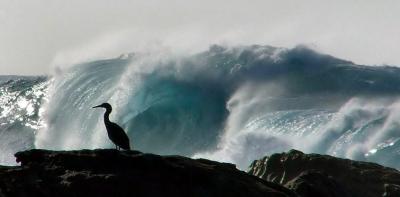One of the striking things about New Zealand in recent times has been the deepening disconnect between our traditional security partners, and the trading partners that increasingly underpin our prosperity.
50 years ago security and trade went hand in hand. Then things started to change with the UK joining the EU. NZ had to seek new partners, new arrangements, and new friends.
Things have greatly improved over the last 30 years
Partly thanks to some welcome – though very slow – agricultutal policy reform in the EU and US.
But also due to the opening of massive new markets on our doorstep in Asia which really want, and are prepared to pay good money for, our products.
China’s entry to the WTO was arguably the biggest event in trade policy in last half century – and even overshadows the importance of the NZ/China FTA
The reality of the last 20 years has been the contrast between the closed and protectionist economies of Europe, North America and Japan, and our new trading partners in the east
China and most of Asia (with the exception of India), as well as much of the developing world, are more open to what we want to sell than our traditional friends.
At least in the primary products that still make up for more than half of our exports
Less than 3% of our dairy trade goes to the EU today
And now, to cap it all, our traditional friends, who built the post-war trading system, seem to be losing their appetite for globalisation.
Trump, Brexit, TPP.
So NZ finds itself in a very challenging place. Axis of tension indeed.
The fact of the matter is – we are an increasingly lone voice in advocating trade liberalisation.
We are a ‘shag on the rock’ in the global trading environment.
Even with all the negotiating success NZ has enjoyed, we now have FTAs with markets that cover 52% only of our current exports.
In the dairy world I know best, only 13% of global dairy demand is open to trade in the sense of tariff rates of 10% or less.
So what’s next?
In an uncertain, dynamic and even alarming world, rather than picking friends from one side or the other, NZ will instinctively revert to our traditional and deep-seated preference for multilateral – ideally global – solutions and institutions.
We still love the WTO, despite all the competition from competing regional and international bodies.
We would love to see the WTO make a comeback, ideally with NZ helping that to happen.
I am personally confident that our future will very largely evolve in the context of some sort of open, rules-based multilateral trading frameworks.
But what is not clear is whether these new arrangements will continue to hew quite so strongly to the Bretton Woods institutions and approaches that have provided the foundation of international trade since the second world war – the GATT, the WTO, FTAs themselves.
Or whether we will collectively develop something different. Something perhaps much more Asian in style, and approach. Perhaps something Chinese.
That would be interesting.
This post is an abridged version of a speech delivered to the NZIIA Global Future Conference. Read the whole speech here.
| A TradeWorks Guest Opinion piece from Philip Turner, Director of Global Stakeholder Affairs, Fonterra | Dec 14,2016 |





